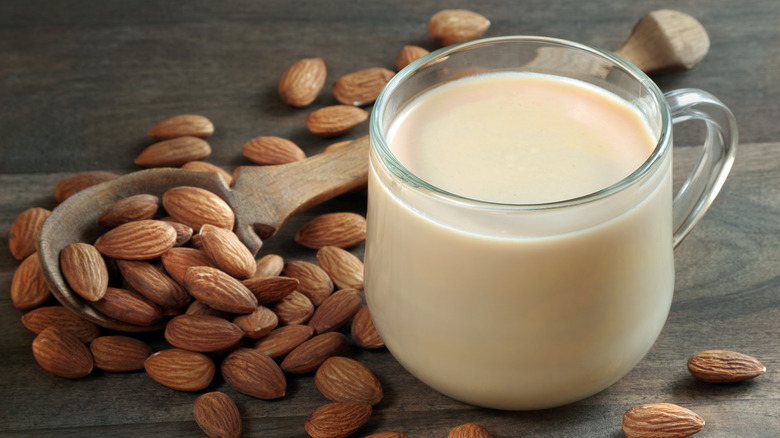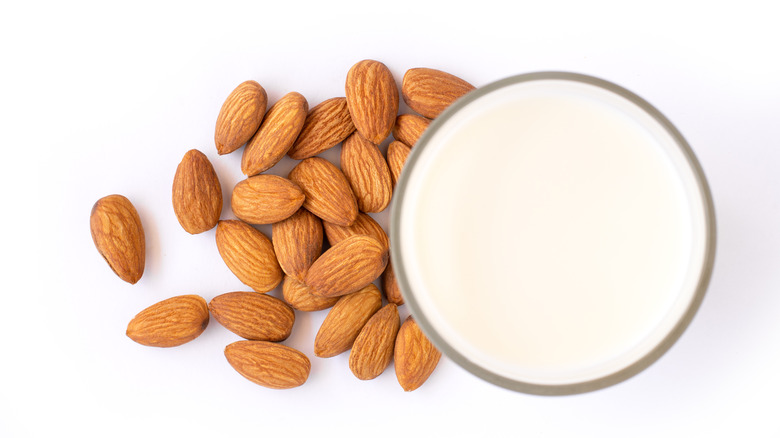What Drinking Almond Milk Every Day Does To Your Body
Plant-based and non-dairy milk has vastly grown in popularity over the last few years. Though numerous varieties are available, almond milk is a common choice for vegans and non-vegans alike. But is it a nutritious option to fuel your body?
Almond milk definitely has some nutritional benefits. It contains fewer calories than its dairy-based counterparts — for instance, unsweetened almond milk contains about 30 calories per cup, compared to 86 per cup in skim milk (via Forbes). It also has fewer carbohydrates and fat than dairy, and many almond milk products add nutrients like calcium and vitamins D and E. For maximum health impact, make sure to choose the unsweetened almond milk, as the sweetened versions are loaded with sugar (via Healthline).
Another perk of almond milk is that it shouldn't irritate your stomach like dairy products might, so no gastrointestinal issues if you have a dairy or lactose sensitivity. But be sure to check for carrageenan, which is added to give the milk a creamier texture. This additive can cause similar digestive issues (via Eat This, Not That!).
Why almond milk may not be as good as you think
However, there are a few downsides to almond milk. For one, it may not be the best choice for children or infants, as they have higher nutritional needs (via Healthline). Almond milk also isn't a great source of protein, because the natural protein from the almonds is mostly removed during the processing, according to Eat This, Not That! This means you may get hungrier faster, as almond milk is almost entirely water. You may also notice a change in your skin due to almond milk's estrogen level, which may cause or reduce hormonal breakouts depending on your body.
All in all, almond milk can be a healthy addition to your diet — especially if you are vegan, or have a dairy sensitivity and struggle drinking regular cow's milk. Its low-calorie, low-carb benefits can also help with dieting. But you shouldn't expect the same boost in protein and other nutrients provided by dairy milk. So if you're making the switch to almond milk, be sure to round out the rest of your diet to make up for those lost nutrients.


